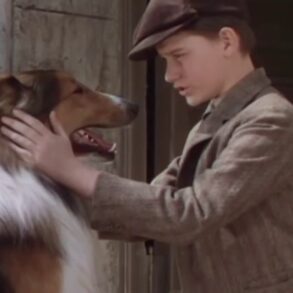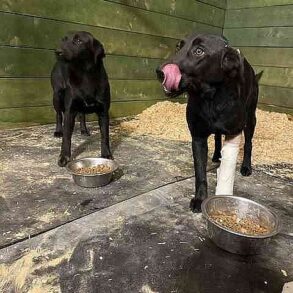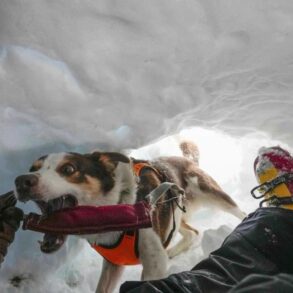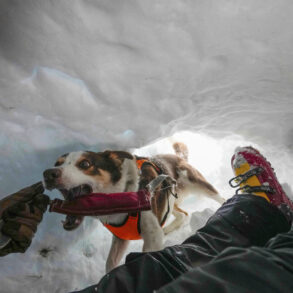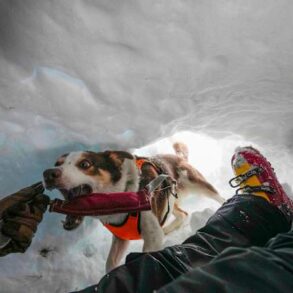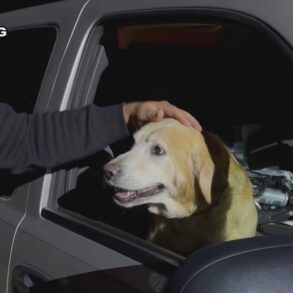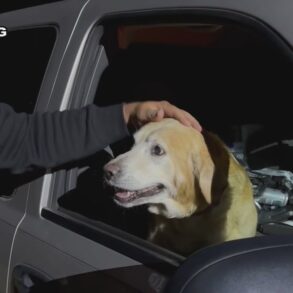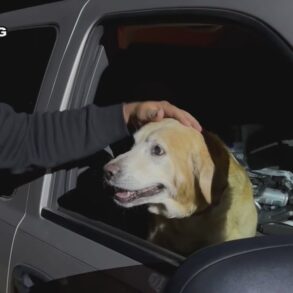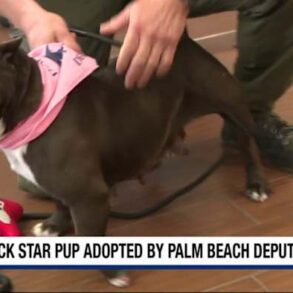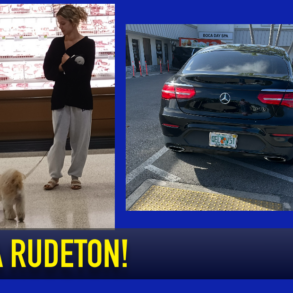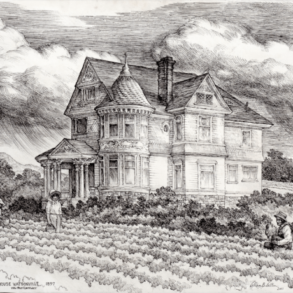Laurie Raymond of Glenwood Springs has a new family member: a 14-year-old Chihuahua named Fiver. And to hear Raymond describe the little guy, it’s safe to say he wasn’t the most adoptable pet at the shelter.
“He weighs about eight pounds. He has a long history of allergies scratching and so forth. He possibly has a heart condition. He has been diagnosed with intervertebral disc disease. He has an ear infection. He has only three teeth,” Raymond explained.
“But, he is lively and bright,” she added.
You might be thinking it takes an angel to adopt a dog with so many issues, but instead, it might just take a human who knows what it’s like to get older. Raymond, 78, found Fiver through a program at the Colorado Animal Rescue that matches older pets with older people. She is delighted that Fiver has settled into her home.
“It’s so, so rewarding. When you take a dog that has needs that you can meet, and you meet them, it may stretch you a little bit, but it is so rewarding,” she said. “And they give far more than they get, no matter what. And you don’t have to look at it as a cost-benefit equation. It’s just the goodness of reciprocal love.”
Reciprocal love is just one of the benefits of pet ownership, especially for older people who can struggle with social isolation and loneliness. But pets do come with challenges. Caitlin Causey of Colorado Animal Rescue, which offers the Seniors for Seniors program, and Lori Kogan, professor at Colorado State University, spoke with Colorado Matters co-host Chandra Thomas Whitfield as part of the ongoing series Aging Matters.
| This story is a part of Aging Matters, a series from Colorado Matters about the Centennial State’s aging population. Read more stories here. |
‘Senior’ pets might sit on the couch or run up a mountain
It’s important to note that not all senior pets have as many health problems as Fiver. Causey said any pet aged seven and up is considered “senior.” That isn’t very old for a cat and even many dogs, she said.
The shelter works hard to match owners and pets with similar energy levels.
“We sort of see the gamut. We see dogs like Fiver who need a lot of TLC, and then we see dogs that are seven who have no medical issues, who are still going on hikes and running up fourteeners with their owners,” Causey said.
Pets can ease isolation and give older people a sense of purpose
Kogan, who chairs the human-animal interaction section of the American Psychological Association, said research shows pet ownership can boost both physical and mental health.
Walking a dog, for example, provides exercise and is also a “social lubricant,” as people who might not say hello otherwise are more likely to stop and strike up a conversation about your dog.
Pets also help combat many of the mental health stresses that older people face.
“I think that pets can have a positive impact on mental health as far as helping with feelings of depression, isolation, giving people a sense of purpose,” Kogan said.
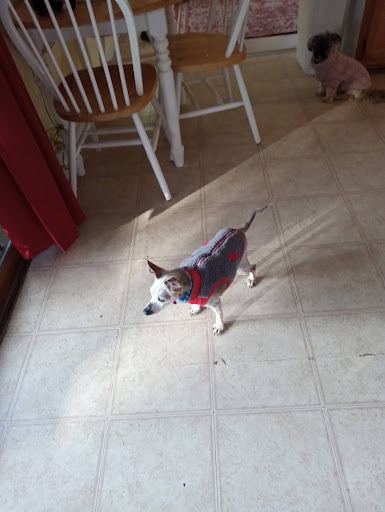
Courtesy Colorado Animal Rescue
Laurie Raymond agrees, especially about the sense of purpose.
“I think for seniors who may be feeling like they’ve lost some of their power and agency in the world, it’s a little dog, but it’s something. It’s something you can actually do to help someone who’s really vulnerable,” Raymond said.
“And it’s satisfying, but it’s also empowering and makes you feel good and like you’re reconnecting with your community, meeting needs, and helping those who need help. What could be more rewarding than that?”
Pets aren’t for everyone. First of all, they can be expensive
Still, pet ownership has challenges, and Kogan wants to be honest about it.
“I don’t know that we can make a blanket statement and say that pets offer benefits to everybody,” she said.
For one thing, pets can be expensive. One study showed the average cost of dog ownership in Colorado is more than $1,500 a year.
Causey said Colorado Animal Shelter tries to reduce the cost by handling some medical expenses before adoption.
“Of course, they’re vaccinated, spayed or neutered, and microchipped. But for our senior pets, we also do a senior blood work panel, and we also provide dental services,” she said. “We try to provide a really complete snapshot of an animal’s health when it goes into a new family.”
Causey said the shelter also has a pet pantry program to help people in need with pet food, and that many shelters across the state have similar programs.
A touchy topic: what if my pet outlives me?
Older people often worry about the future for their animals, especially if they might have to move to a senior living facility that doesn’t accept pets. And they wonder, what happens if their pets outlive them?
Causey said that a change of circumstances can affect any pet owner.
“We encourage any adopter out there to have a plan in place in case there was some sort of scenario where you were no longer able to care for your pet,” she said.
In particular, Causey recommended identifying a trusted friend or family member who would care for your pet, and talking to that person in advance so that everyone is on board.
If everything falls through, she said, you can bring your animal back to the shelter.
“That’s part of what we do,” she said. “In fact, we encourage adopters to bring back our pets that come from Colorado Animal Rescue to our shelter because they’re known to us typically. We have a better idea of their medical history and we know their behavior,” making them easier to adopt back out.
| Whether you’re aging yourself or caring for someone who is, what questions do you have? Email us at [email protected] or leave a voicemail at 303-871-9191 X 4480. |
Another downside: those puppy eyes can make you feel guilty
Many pet owners find that the unconditional love that pets bring comes with a flip side: guilt. Kogan has done studies on the topic and knows the feelings are real.
“What I found, and it’s no surprise for those of us that are pet owners, is that just having a pet brings with it a lot of guilt,” she said.
“So for example, I’ve talked with a lot of dog owners that feel guilty because they don’t walk their dog enough or it’s cold outside, and so they don’t want to go out for a walk or they’re too tired at the end of the day to really play with them, or they’ve been at work all day long and then feel really guilty about wanting to go out in the evening or go on vacations because they have to board them. And so it’s actually quite common.”
Guilt can make people feel anxious and even depressed, Kogan said.
If a pet is right for you, the right pet is out there (and it may be a senior pet)
Kogan emphasized that finding the right pet can take some effort, and she encouraged older people to be honest about their lifestyle and their needs.
“So if people are unable to walk well, for example, maybe a cat is a better match. Or, there’s a lot of dogs that are really quite couch potato-type dogs,” she said. “I think it goes back to making sure that it’s a good match between that particular animal and that person.”
“I think there are appropriate and good pets for almost everybody,” she said.
This post was originally published on this site be sure to check out more of their content.









